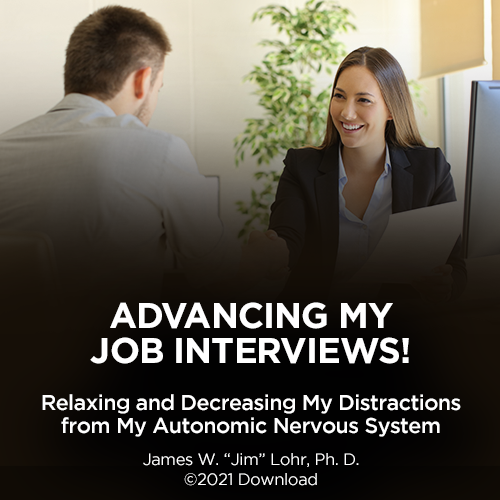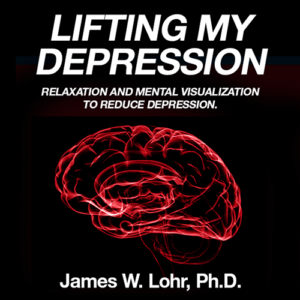Advancing My Job Interviews
$0.00
- Under stress, your brain and body speed up to help you. Since you cannot control the speed of your interior organs, your body distracts you during the interview.
- You have two nervous systems: your “somatic” nervous system controls your exterior” muscles and your “autonomic” nervous system controls your internal organs.
- Tensing and relaxing your muscles calms your brain and slows your interior organs.
- You can retrain your brain and muscles to remain relaxed. If you imagine preparing for and taking the job interview while you are relaxed, you will reduce your anxiety and pay more attention for a successful interview.
During the years I taught at Iowa State University, I knew students who became very anxious during their job interviews. Their anxiety kept them from focusing on the interviewer and their questions.
I found similar problems in my classes for my public speaking students. They were too anxious to focus on their audience and the content they were describing. I developed an audiotaped program for students which helped them overcome their fear. I believe the same approach can help students and adults facing preparing for and experiencing job interviews.
Lions and bear terrified our ancestors. You are likely to focus on how anxious you are in job interviews, because of their importance to your future. The amygdala in your brain tries to help you overcome threats by speeding up our inner organs so we are ready for the flight – or the fight. You cannot control these internal organs directly. Once you understand the process, you can remain more calm.
Each of us has two separate nervous systems: the “somatic” nervous system controls our exterior muscles; the “autonomic” nervous system controls our inner organs. With terror or fear, your external muscles become tense to prepare you for extreme action and your internal organs speed up. Systematically tensing and relaxing the external somatic muscles from feet to head, calms the amygdala. When your amygdala calms down, your heart-rate will slow down, your lungs will breathe normally and your hands will sweat less. Then your mind can concentrate on the questions your interviewer asks and you can master the interview.





Reviews
There are no reviews yet.